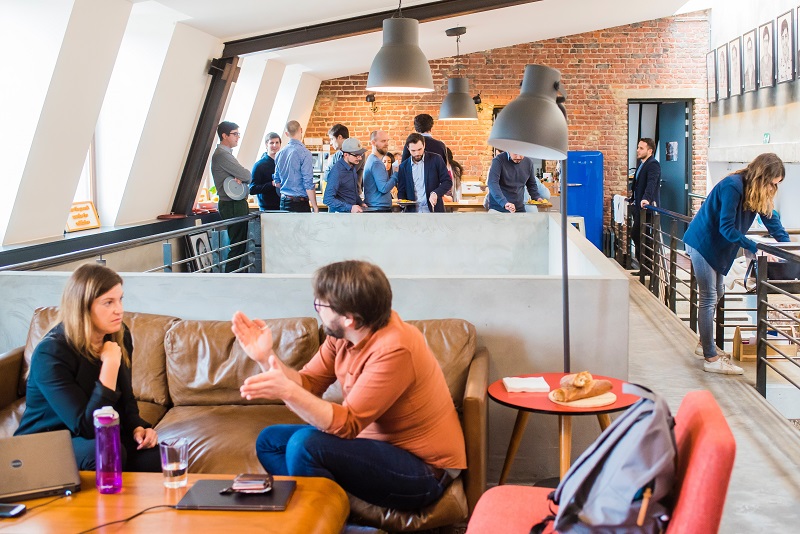As a result of the pandemic workplace traditions have changed, company cultures have been forced to change, and employees expectations have changed.
A recent study from the BBC showed that a total of 70% of the 1,684 people they polled predicted that workers would “never return to offices at the same rate.”
At ADR we also ran a poll which showed that 42% of employees now want a split between working from home and the office, rather than returning to the office on a full time basis.
So, as an employer you now have some questions to ask yourself.
Are you going to change the way you operate to accommodate how the majority of employees now want to work – more flexibly? Or are you planning to go back to how things have always been and keep the traditional office-based approach?
If the latter, how do you plan to ask employees to return to the office full time and how are you going to manage any difficult situations that could arise?
Introducing workplace mediation
Workplace mediation can help you handle any type of workplace grievance, regardless of how difficult a situation has become.
Workplace mediation involves third party mediators working with all involved parties to reach a mutually beneficial resolution. Not only does this help to resolve current issues, it also prevents them from resurfacing or similar issues arising in the future.
It’s not the mediators job to recommend specific courses of action, it’s the mediators job to facilitate positive conversations and direct the process to help you decide on a way forward that benefits everyone – the business and the staff.
Therefore then, workplace mediation is a powerful tool when it comes to managing the return of your employees back into the office – regardless of individual beliefs, perspectives or situations.
In a recent article – How to Help Employees Feel Comfortable Going Back to the Office — we looked at the different perspectives individuals may have and how you can handle each of them. Some employees may be keen to get back to the office full time after months of working from home. Others will want a split between working from the office and homeworking. A few may feel reluctant to return to the office at all, perhaps due to Covid concerns or the fact they are benefitting from a new work-life balance and lifestyle.
It’s likely you will have employees with varying wants and needs regarding where they work in the future. The good news is workplace mediation is not only there to intervene when necessary, it can help you manage the process from the outset. Expert mediators can help at every stage, from creating processes to minimise grievances, to implementing procedures that handle any situations that do arise.
How workplace mediation can help
So it’s clear that asking employees to return to the office may cause conflict, and workplace mediation is a powerful tool to help you navigate this at all stages.
It might not be the case that you’re asking all employees to return at the same time. You might have a circumstance whereby some employees have worked from the office all along and some are now returning from furlough, for example.
This could cause issues in itself. Staff that have kept the ship afloat all this time may feel hard done by that the employees returning have been paid most of their salaries for months whilst not working.
Equally, the employees returning from furlough may struggle to integrate back into the office environment and things may have changed a lot, causing potential issues.
Regardless of the reason(s) for any workplace changes, issues can occur and mediation is there to help.
Here’s how we handle a typical workplace mediation case at ADR Mediation. Most mediations conclude the same day but more complex cases can take longer.
Workplace mediation: the process
- A client contacts us or a case is referred to us
- Together we decide if the mediation should take place in the workplace, at a neutral venue or online. This will depend on location and the specific situation
- In the morning we talk to each individual involved on their own to get their side of the story and their desired outcome
- In the afternoon we facilitate the joint discussion and lead it towards a mutually beneficial outcome
- We follow up with the client 1, 3 and 6 months after the case to check all is going well
Mediation is all about finding that win-win agreement and preventing future issues. The mediator guides the joint conversations and brings the parties together in a way that facilitates positive discussion.
With a third party involved there’s no hierarchy. It’s not employer vs employee. It’s everyone having a productive discussion guided by a professional mediator and agreeing an outcome. This creates sustainable resolutions in a way that trying to work things out in house can’t often achieve.
Implement workplace mediation early
At ADR we can help you get plans, strategies and processes in place before you ask people to return to the office to help things go smoothly. Then if you do come across any grievances you will have a process to follow and you can call on us quickly when you need us before situations escalate.
Workplace mediation saves you time, money and stress. It gets your teams working cohesively again in line with your business goals. It prevents you losing good people and having to go through the hassle and expense that comes with recruitment, selection and training.
To find out how we can help you we’re currently offering free 1-hour mediation consultations. See how workplace mediation could benefit you. Book your review today by emailing info@adrmediation.org.uk or call us on 01772 954602.

